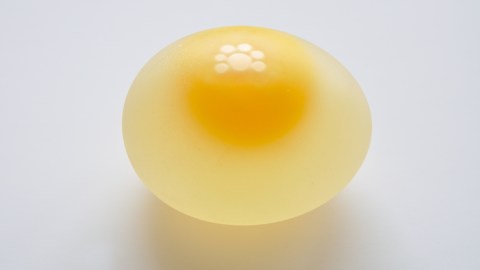Scientists modify chickens to lay cancer-fighting eggs

Image: Biswarup Ganguly
- The eggs contain an antiviral protein called human interferon beta.
- This protein is known to combat some forms of cancer and other conditions.
- The unusual technique could one day provide cheaper and more effective treatments.
Scientists in Japan have genetically modified chickens to lay eggs containing an extremely valuable protein that helps treat cancer, hepatitis and multiple sclerosis in humans.
The cost of one of these so-called ‘golden eggs’ is estimated to be between $535,995 and $2.6 million. However, researchers described their work as still being in the early steps and on the road toward cheaper cancer treatment.
“This is a result that we hope leads to the development of cheap drugs,” Hironobu Hojo, professor at Osaka University, told The Japan News. “In the future, it will be necessary to closely examine the characteristics of the agents contained in the eggs and determine their safety as pharmaceutical products.”
The researchers, working out of Japan’s Biomedical Research Institute at the National Institute of Advanced Industrial Science and Technology, recently described their findings in a paper published in Nature.
The ‘golden eggs’ contain high amounts of human interferon beta, an antiviral protein thought to combat some forms of cancer and hepatitis, and to slow the progression of multiple sclerosis.
How it works
To get hens to lay the valuable eggs, the team used genome-editing technology to modify cells from cockerel embryos so that the animal’s protein-producing DNA would go on to produce human interferon beta in eggs instead of normal egg whites. These cells were then reinserted into the embryos and the cockerels later mated with hens.
After two generations, hens were laying eggs with visibly cloudier whites that contained human interferon beta.
Image: Oishi et al.
The researchers are working with Cosmo Bio, a Japanese reagent maker, to potentially produce the drug for the commercial market.
“For interferon-beta protein, we have about 20 hens in-house,” Mika Kitahara, a spokesperson for Cosmo Bio, told The Telegraph. “So far our hens produce the eggs constantly, just like normal hens.”
Kitahara noted that the process doesn’t seem to harm the chickens. “These hens can produce eggs constantly, so we can obtain recombinant proteins in large amounts and with stability,” she said. “In addition, this system doesn’t involve killing hens.”






